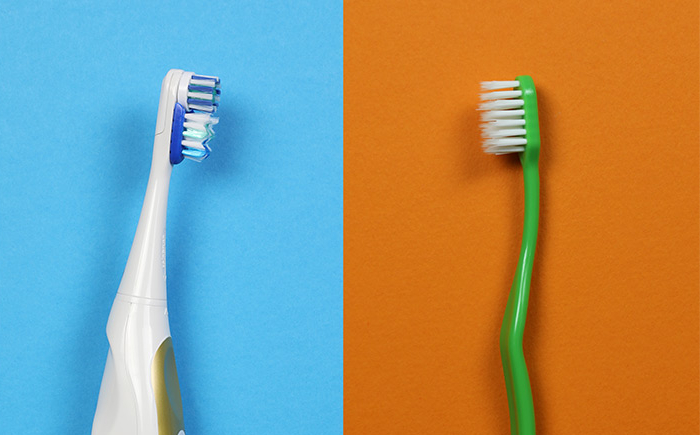
Choosing the right toothbrush is an essential step toward maintaining good oral hygiene, but the decision between a manual and an electric toothbrush can be overwhelming. Both types can effectively clean your teeth when used correctly, but there are a few key differences that may make one a better choice for you than the other. Manual toothbrushes are the most common and widely available option. They are affordable, portable, and come in various shapes, sizes, and bristle types. Manual toothbrushes allow for full control over the brushing technique, which can be particularly beneficial if you’re looking for a more personalized approach to your oral care routine. However, they do require a bit more effort and skill to ensure that you’re brushing effectively for the full two minutes.
On the other hand, electric toothbrushes offer more convenience and can provide a more thorough cleaning. The vibrating or rotating bristles of an electric toothbrush can help remove plaque more effectively, particularly in areas that are hard to reach. For individuals who may have difficulty brushing thoroughly due to arthritis or other mobility issues, electric toothbrushes can be easier to handle and require less effort. Many electric models also come with built-in timers to ensure that you brush for the recommended two minutes and alert you when it’s time to move to a different quadrant of your mouth. These features make electric toothbrushes a great option for people who want a more consistent and convenient brushing experience.
When deciding between a manual or electric toothbrush, consider your personal preferences and needs. If you prefer simplicity and portability, a manual toothbrush may be the best option. They are lightweight, inexpensive, and don’t require charging or batteries. However, if you’re looking for a more advanced cleaning experience and are willing to invest in a higher price point, an electric toothbrush may be a better fit. Some electric toothbrushes come with additional features such as multiple brushing modes, pressure sensors to avoid brushing too hard, and even smartphone apps that track your brushing habits to improve technique.
Another factor to consider is bristle type. Both manual and electric toothbrushes come with a variety of bristle types, such as soft, medium, and firm. Dentists typically recommend using a soft-bristled toothbrush, whether manual or electric, as hard bristles can damage your gums and enamel over time. If you have sensitive gums or teeth, look for a toothbrush with soft bristles to avoid irritation. Additionally, it’s important to replace your toothbrush, whether manual or electric, every three to four months or sooner if the bristles become frayed. Regularly replacing your toothbrush ensures you are brushing with effective tools that can provide the best possible cleaning.
In terms of effectiveness, research suggests that electric toothbrushes may offer superior plaque removal, particularly for people with poor brushing habits. Studies have shown that electric toothbrushes can reduce plaque and gingivitis more effectively than manual brushing, primarily due to their oscillating or vibrating action, which helps remove debris and bacteria from teeth and gums. However, the effectiveness of either toothbrush ultimately depends on the user’s technique and consistency. Proper brushing for two minutes, twice a day, is the most important factor for maintaining good oral hygiene, regardless of the toothbrush type.
Finally, cost is an important consideration when choosing between a manual and electric toothbrush. Manual toothbrushes are much more affordable, typically costing just a few dollars, while electric toothbrushes can range from $20 to over $200, depending on the features and brand. While the upfront cost of an electric toothbrush may seem high, the long-term investment could be worth it if you’re seeking more advanced cleaning and convenience. Be mindful of the replacement brush heads for electric toothbrushes, as they can add to the overall cost. Ultimately, both manual and electric toothbrushes can be effective, but the best choice depends on your individual needs, preferences, and budget.
Choosing the right toothbrush is a personal decision that can impact your oral health. Manual toothbrushes offer simplicity and affordability, while electric toothbrushes provide convenience, advanced features, and potentially more effective cleaning. Regardless of the type you choose, be sure to brush properly and regularly to ensure a healthy, bright smile. By understanding your needs and preferences, you can select the toothbrush that works best for you and maintain optimal oral hygiene.
1819 N Washington Ave, Dallas, TX 75204, USA
+1 214-768-2503
info@healthynutritiontip.com
© Healthy Nutrition Tip. All Rights Reserved. Design by Healthy Nutrition Tip